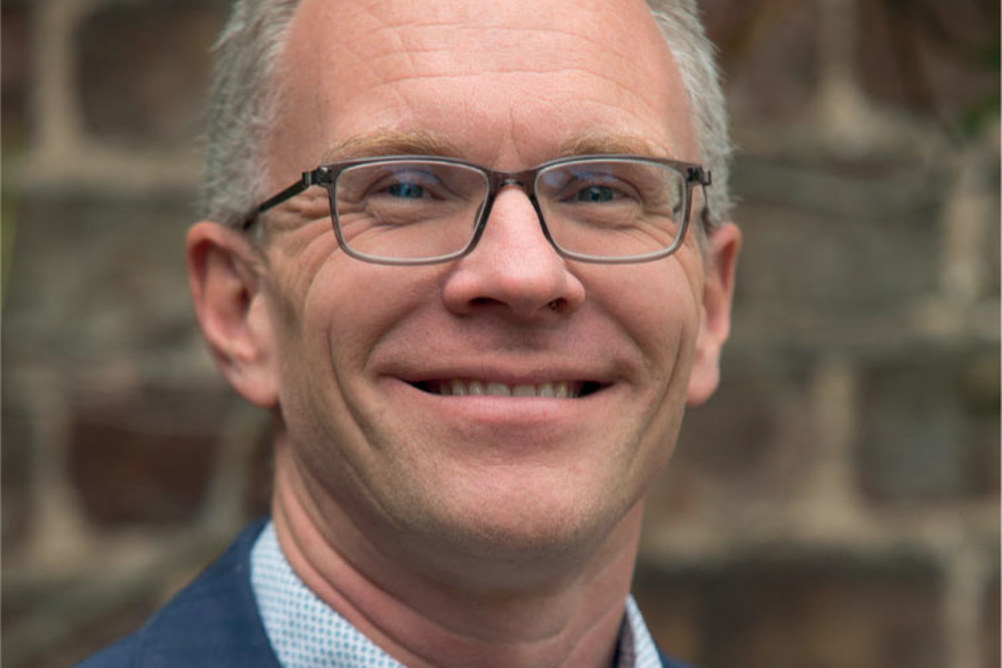
Add to this that Blake has been an avid user of YHA hostels since he was a teenager and it's easy to see why it is a role and organisation he cares passionately about. However, no amount of enthusiasm can address the challenging funding landscape for the outdoor education sector nor the rising costs of operating youth hostels. It is why the YHA – which operates more than 150 sites in the UK visited by 400,000 young people each year – is pushing hard for more support from the government through the upcoming Spending Review, the promised National Youth Strategy and ongoing school curriculum review. With an eye on the shifting policy and funding landscape, YHA has opted to publish a fresh strategic plan for the next five years.
How important is it for all young people to have access to outdoor adventure opportunities?
We know that young people's mental health has deteriorated since the pandemic and that adventure play and getting away from home is a really key intervention to both prevent and support mental health. Offering access to nature as part of that residential is an area we've been particularly focusing on through our Generation Green programme, which we've done in partnership with other outdoor providers in national parks. Evaluation by the University of Derby found that if you combine a residential with access to nature that can have benefits for young people's confidence, independence, resilience and wellbeing, and of course caring for the natural environment. A lot of young people who come on our residentials have never been away from home before.
With this in mind, are you concerned about the ending of the National Citizen Service (NCS) and the impact that could have on disadvantaged young people's access to residential experiences?
We were a partner of NCS for 12 years. The concern was that you had a huge amount of money going into one quite prescriptive programme, at a time when youth services were being cut. But NCS did evolve to become a well targeted programme focusing on those more disadvantaged young people. We supported nearly 3,000 young people through the NCS last year. So, we were disappointed when it went in the way it did and with nothing to replace it.
The loss of NCS has hit outdoor adventure providers financially. Has YHA found it difficult to replace the income from the NCS?
Yes we have. Kingswood was an example of an organisation that [closed] because of NCS. It was one of a number of blows that came together, such as the rise in National Insurance contributions. We had space reserved for NCS residentials we expected this year – you can release that space but groups and schools tend to book residentials a long time in advance so it's hard to replace that. We're behind in volumes and budgets at this point in the year.
One of the positives of the post-Covid regime was that we got funding from Defra to support bursaries for disadvantaged children to participate in Generation Green. We did a couple of rounds of that and there were really positive outcomes but the funding ended last year.
How would you like to see the government address this in the coming months?
We all understand that funding is constrained but investing in young people feels to me a key part of supporting the government's other missions, for example on health – it feels like an opportunity at the start of a new government to lay that out more clearly and the youth strategy could be the place where that comes together.
Most governments would have an integrated youth strategy – in Wales there's the Future Generations Act that has genuinely helped youth policy – and my hope is that the youth strategy review in England has adventures away from home and residentials as a core part of it.
How have you incorporated the new funding and policy landscape into the YHA's strategy refresh?
In our original strategy, we talked a lot about improving health, wellbeing and life skills. What we've tried to do this time is be more specific about the elements of wellbeing, for example, that we contribute to through outdoor residentials. Our research tells us they are: confidence to try new things like activities; connection to nature, heritage and to each other; and meeting outside and forming bonds with themselves and teachers.
We want to double the proportion of the young people that stay with us who come from more disadvantaged backgrounds and increase by 50% the proportion of people coming for first-time stays, who are often educational and youth groups.
Do you support efforts to incorporate residential experiences into the revised national curriculum?
That would solve a lot of these [funding] problems overnight. It would also, I think then flow down into the sector. One of the things I've been urging the government to do is to fund research about how many people do get a residential now in whatever form, and how many that don't, so that we can see what the gap is and the sector can work to fix it. There's a funding issue, of course, but also a capacity issue in the sector because sadly we've seen a reduction in capacity. So, demand is going up and capacity's gone down.
JAMES BLAKE
- July 2017 – present: Chief executive, YHA
- Jan 2013 – July 2017: Chief executive, St Albans St Council
- Jan 2012 – Jan 2013: Deputy chief executive, Albans Council
- Jan 2009 – Jan 2012: Chief policy and partnerships officer, St Albans Council
- June 2005 – Dec 2008: Deputy director, Department for Communities and Local Governmentn
- 2001 – 2005: Team leader, Office of the Deputy Prime Minister

